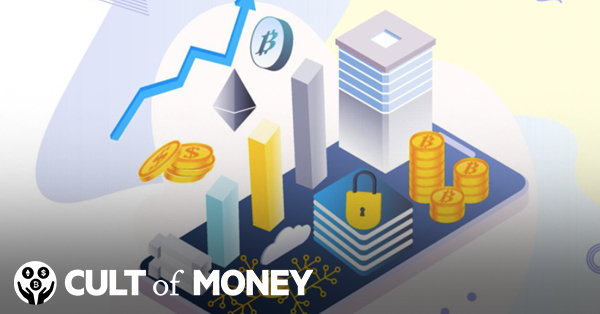
If you’re interested in cryptocurrencies, you need a good place to buy, sell and trade them. This is where exchanges come in. On a cryptocurrency exchange, you can find tokens to buy or sell the tokens you already have. You can also do a token-for-token exchange.
Understanding how cryptocurrency exchanges work is important so that you know what you’re getting into. Your first step is to understand the difference between a centralized vs. decentralized exchange. Here’s what you need to know.
Centralized vs. Decentralized Exchange: The Basics
A centralized exchange (CEX) in crypto refers to a currency exchange that has a central authority in control. This third party manages the transactions and can even hold your crypto assets for you. Examples of centralized exchanges include Coinbase and Gemini.
On the other hand, a decentralized exchange (DEX) has no third party managing the exchange. Instead, you hold your own assets and engage directly with the person on the other side of the transaction. Examples of decentralized exchanges include Uniswap and SushiSwap.
With a centralized exchange, you’re more likely to have access to a hot wallet, as well as some type of other storage, like the Vault offered by Coinbase. Fees are also likely to be higher, and you have to be warier of security breaches.
On the other hand, a decentralized exchange usually comes with more complicated transactions, since you need to connect your wallet. Fees might be lower, but there’s also a higher chance that you could fall victim to a scam.
Let’s dig a little bit deeper into some of the differences in a centralized vs. decentralized exchange.
CEX vs. DEX: Characteristics
Below, we break down some of the main differences between centralized vs. decentralized exchanges and explain how that translates into advantages and disadvantages for crypto traders and investors.
Diversity Of Crypto Tokens
One of the first things many people notice about CEX vs. DEX is the diversity of available tokens. Many exchanges like Coinbase and Gemini offer fewer tokens for buying, selling and trading. However, if you head to a DEX like Uniswap, you could potentially access thousands of cryptocurrencies.
There are more than 4,000 cryptocurrencies as of 2021. Centralized cryptocurrency exchanges don’t typically offer access to very many of those.
Getting a token listed on a CEX requires more work. There are various standards required, in addition to liquidity criteria and certain security protocols. As a result, if you’re interested in trading a lesser-known token, you might not find it on a centralized exchange.
On a DEX, though, just about any token can be listed. In fact, a DEX like Uniswap allows you to list your own tokens. For the most part, as long as you have the asset, you can trade it on a decentralized exchange. The main issue is finding someone to trade with you if you have a token that’s not well-known or in high demand.
Liquidity
This brings us to liquidity. Uniswap is working on this issue by having a market maker protocol that involves liquidity pools to ensure that there are assets available for trading. However, in general, if you have an obscure token, it might be harder to trade it. You might buy a token on a DEX hoping that it takes off. But if it doesn’t, you might have a hard time unloading it.
With a CEX, though, you can get rid of the token when you’re ready. Because the third party does the job of matching buyers and sellers, you don’t have to find someone to transact with you. On top of that, a centralized cryptocurrency exchange will only list assets that meet a minimum trading volume. If it doesn’t have a certain level of liquidity, it’s not on the exchange.
As a result, you can almost always quickly and easily complete a transaction on a CEX, whether you’re buying, selling or trading. For those who want a reasonable assurance that they’ll be able to complete transactions, a CEX is the most dependable choice.
Ease Of Use
For the advanced crypto trader, using a decentralized exchange isn’t an issue. When you understand how trading works and you have the tools to connect a wallet, a DEX can be just as easy to use as a CEX.
Beginners, though, might have a learning curve with a DEX. After all, it involves getting a crypto wallet you can connect to the exchange to complete the transaction. Depending on the situation, you might need to make sure you know your wallet address. In some cases, you might need crypto tokens already in your wallet to participate.
With a centralized exchange, you can just hop on and use your fiat currency to get started buying your first token. It’s usually as easy as using a debit or credit card or connecting your bank account. When you’re ready to sell, you just do so and withdraw your fiat funds back to your bank account.
For casual investors and traders who are more interested in ease of use and aren’t interested in the decentralized finance (DeFi) ecosystem, a CEX can make more sense. Get in, try it out and get out. On the other hand, if you’re looking for more DeFi and you’re hoping to be more involved, learning how to transact business on a DEX can make sense.
Security
When looking at a centralized vs. decentralized exchange, there are different types of security to consider.
First of all, with a centralized exchange, you’re less likely to be scammed. Because the tokens go through a vetting process, you’re not likely to see bogus coins. In fact, it’s the exchange that’s responsible for the assets. So the main issue with a CEX from this standpoint is whether the tokens you buy lose value.
Some DEXs have problems with scams. There are a number of scammers who offer their tokens and then disappear. Additionally, if you lose or forget your private keys, there’s no way to recover them. Your wallet could be lost to you. With a CEX, there’s usually a password recovery process. So you can get access your assets, even if you lose your information.
On the other hand, a CEX is usually more vulnerable to hacking. There have been instances in the past when Coinbase user accounts have been hacked and drained. On top of that, if a regulatory authority decides to shut down a centralized exchange, you could lose whatever crypto assets you have stored with it. After all, crypto assets aren’t covered by FDIC or SIPC insurance.
With a DEX, though, you have full control over your crypto assets. Since you keep them off the exchange in your own wallet, the only issue you run into is if you reveal your private keys or seed phrase to someone else. Even if the exchange shuts down, your assets will remain safe in your own storage. They can’t be confiscated from the exchange because the exchange doesn’t have them to begin with.
Scalability
Any technology network is going to have issues and problems. Both centralized and decentralized exchanges have outages and slowdowns and other issues. However, with a DEX, the scalability has been a bit sketchy. On the blockchain, it can be difficult to scale up.
For example, Ethereum can handle about 13 transactions per second. Compare that to the payment processor Visa, which claims it can handle 24,000 transactions per second (although the average is actually about 1,700 per second, according to a calculation by Toward Data Science).
A CEX uses technology more in line with established transactions and is often more scalable — for now. But some believe that blockchain technology will adapt and even surpass current technology. For example, Solana claims that it will be able to handle 50,000 transactions per second. Additionally, a DEX built using the Solana blockchain may be less expensive than those that use Ethereum (which is notorious for having high gas fees).
Bottom Line
The good news is that crypto investors don’t have to choose between a centralized vs. decentralized exchange.
It’s possible to use a CEX for faster purchases of more common crypto assets you intend to use for investment purposes while using a DEX to get access to more interesting and speculative assets. Additionally, you can use a DEX as part of your strategy to transition to DeFi, if that’s what you’re interested in.
Carefully consider your own financial goals and portfolio strategy anytime you make decisions about adding crypto assets. They can be a great way to build wealth in your portfolio, but they also come with different risks.

Miranda Marquit, MBA, has been covering personal finance, investing and business topics for more than 15 years, and covering crypto topics for more than 10 years. She has contributed to numerous outlets, including NPR, Marketwatch, U.S. News & World Report and HuffPost. She is an avid podcaster, co-hosting the podcast at Money Talks News. Miranda lives in Idaho, where she enjoys spending time with her son playing board games, travel and the outdoors.
